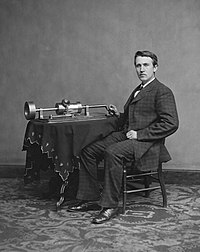
Photo from wikipedia
The “Porter Hypothesis” proposes that appropriate environmental regulations would promote firm innovation. This study aims to build a theoretical model for illustrating the impact and mechanism of environmental regulation on… Click to show full abstract
The “Porter Hypothesis” proposes that appropriate environmental regulations would promote firm innovation. This study aims to build a theoretical model for illustrating the impact and mechanism of environmental regulation on urban innovation through a panel of 281 Chinese prefecture-level cities during 2003–2016. The results indicated that an increase in environmental regulation markedly suppressed the innovative capacity of Chinese cities during the sample period. This inhibitory effect is primarily transmitted through two mediating variables: lower regional fiscal revenue and reduced manufacturing output. Moreover, improved regional economic development level helps generate positive incentives for environmental regulation and mitigate its inhibitions to innovation. Environmental regulation and urban innovation might have a non-linear U-shape relation, with the former helping improve urban innovation capacity upon reaching a particular level.
Journal Title: International Journal of Environmental Research and Public Health
Year Published: 2022
Link to full text (if available)
Share on Social Media: Sign Up to like & get
recommendations!